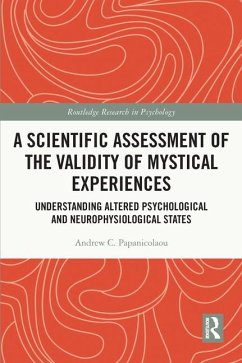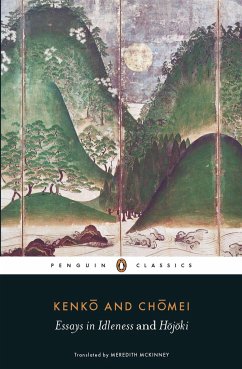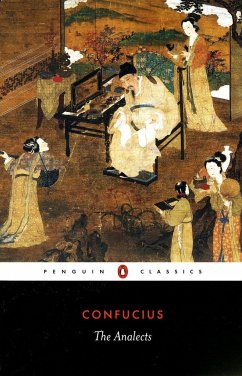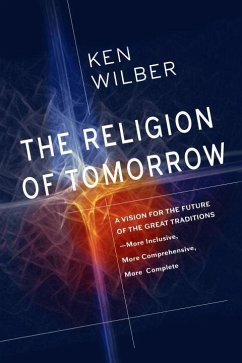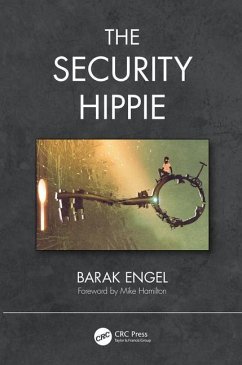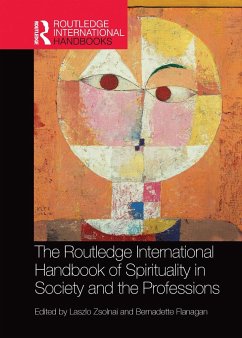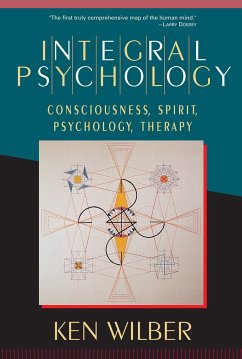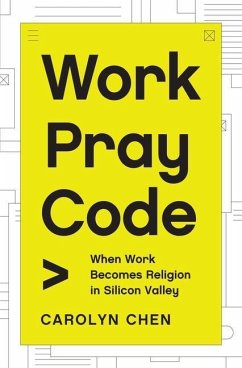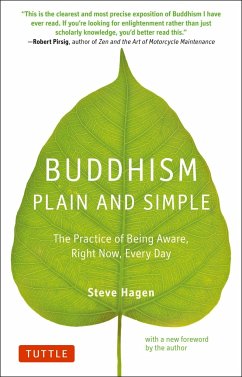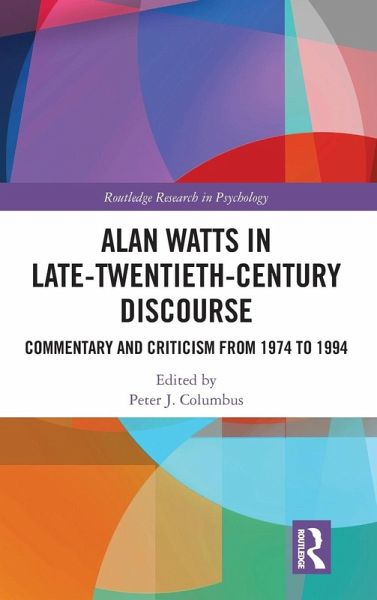
Alan Watts in Late-Twentieth-Century Discourse
Commentary and Criticism from 1974 to 1994
Herausgegeben: Columbus, Peter J.
Versandkostenfrei!
Versandfertig in 6-10 Tagen
154,99 €
inkl. MwSt.
Weitere Ausgaben:

PAYBACK Punkte
77 °P sammeln!
This book is an anthology of commentary and criticism written within the transitional period between Alan Watts' 1973 death and the twenty-first century intellectual horizon.Comprised of 16 chapters written and published between 1974 and 1994, with up-to-date introductions from the essayists and other contemporary thinkers, this volume opens a window onto unexplored grounds of Alan Watts' impact within late-twentieth-century discourse - an intermediate space where scholars reoriented their bearings through changing times and emerging academic trends. Offering varied explanations and assessment...
This book is an anthology of commentary and criticism written within the transitional period between Alan Watts' 1973 death and the twenty-first century intellectual horizon.
Comprised of 16 chapters written and published between 1974 and 1994, with up-to-date introductions from the essayists and other contemporary thinkers, this volume opens a window onto unexplored grounds of Alan Watts' impact within late-twentieth-century discourse - an intermediate space where scholars reoriented their bearings through changing times and emerging academic trends. Offering varied explanations and assessments of Alan Watts, including his influence on the Beat and Hippie generations, and his popularization of Zen Buddhism in America, it tackles unaddressed questions within the milieu of late-twentieth-century America from the Reagan Revolution and religious conservatism, to paradigm shifts in Buddhist studies and the rise of post-colonial theory. Contributors' post-mortem analyses and critiques of Watts allow for a thematic rendering of their consonance or dissonance with noted Beat, Hippie, and Zen Buddhism themes of his lifetime.
This volume will appeal to scholars and students of humanistic psychology, transpersonal psychology, the psychology of religion, comparative religion, and American studies.
Comprised of 16 chapters written and published between 1974 and 1994, with up-to-date introductions from the essayists and other contemporary thinkers, this volume opens a window onto unexplored grounds of Alan Watts' impact within late-twentieth-century discourse - an intermediate space where scholars reoriented their bearings through changing times and emerging academic trends. Offering varied explanations and assessments of Alan Watts, including his influence on the Beat and Hippie generations, and his popularization of Zen Buddhism in America, it tackles unaddressed questions within the milieu of late-twentieth-century America from the Reagan Revolution and religious conservatism, to paradigm shifts in Buddhist studies and the rise of post-colonial theory. Contributors' post-mortem analyses and critiques of Watts allow for a thematic rendering of their consonance or dissonance with noted Beat, Hippie, and Zen Buddhism themes of his lifetime.
This volume will appeal to scholars and students of humanistic psychology, transpersonal psychology, the psychology of religion, comparative religion, and American studies.





